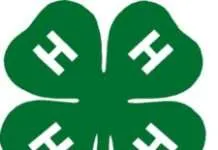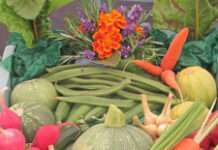K-State horticulture expert says watering may be needed sooner than you think
MANHATTAN, Kan. – Gardeners have been spared part of their chores the past 2 to 3 weeks as rains across much of Kansas have helped to keep their plants well-watered.
Kansas State University horticulture expert Ward Upham said in some parts, soils have been saturated for several weeks. The result is that soil moisture levels are likely to be very high.
“Gardeners are likely to assume that watering won’t be needed for quite some time,” Upham said. “Actually, watering may be needed much sooner than you expect.”
Upham said excessive rain can drive oxygen out of the soil and literally drown the roots. Plants with damaged root systems may now be susceptible to a lack of water as hotter, drier weather arrives.
“Check your plants for signs of wilting or leaf scorch, and water as needed,” Upham said. “If irrigation is called for, water deeply and infrequently; usually once a week is sufficient depending on the weather. Soil should be moist but not waterlogged.”
New potatoes
Upham also said many gardeners are looking forward to harvesting new potatoes this time of year. New potatoes are ‘young’ potatoes that are typically sweeter because their sugar has not converted to starch. They have thin, wispy skins and a crisp, waxy texture.
New potatoes should be about the size of walnuts right now.
“Pull the soil away from the base of the plants to see if the tubers are the desired size,” Upham said. “If they are, dig entire plants and allow the skins of the exposed tubers to dry for several hours before gathering. These young potatoes are very tender and prone to skin ‘slipping’ unless they are given a few hours to dry.”
Upham said new potatoes will not store well, so it’s best to use soon after harvesting. Red-skinned varieties are often preferred because they are the earliest to produce, he said.
Fruit reminders
Upham listed a few chores for those managing fruit gardens. They include:
• Remove some fruit from heavily loaded apple and peach trees (if the flower buds weren’t killed by a spring-time frost) to improve the size of fruit harvested later and to prevent limbs from breaking. Apples and peaches should be 6 to 8 inches apart, on average.
• Remove sucker growth from the base of fruit trees and grape vines.
• Remove water sprout growth from fruit trees. Water sprouts grow straight up from existing branches.
• Water as needed. Upham suggests about 1 inch of water per week, though more may be needed during hot spells.
• Comb new growth on grape vines so that new shoots hang down, encouraging greater exposure to sunlight.
• Continue disease and insect control to prevent damage to fruit.
Upham and his colleagues in K-State’s Department of Horticulture and Natural Resources produce a weekly Horticulture Newsletter with tips for maintaining home landscapes. The newsletter is available to view online or can be delivered by email each week.
Interested persons can also send their garden- and yard-related questions to Upham at [email protected], or contact your local K-State Research and Extension office.
FOR PRINT PUBLICATIONS: Links used in this story
K-State Horticulture Newsletter, https://hnr.k-state.edu/extension/info-center/newsletters/index.html
K-State Research and Extension local offices, www.ksre.k-state.edu/about/stateandareamaps.html
K State Research and Extension is a short name for the Kansas State University Agricultural Experiment Station and Cooperative Extension Service, a program designed to generate and distribute useful knowledge for the well being of Kansans. Supported by county, state, federal and private funds, the program has county extension offices, experiment fields, area extension offices and regional research centers statewide. Its headquarters is on the K State campus in Manhattan. For more information, visit www.ksre.ksu.edu. K-State Research and Extension is an equal opportunity provider and employer.
Story by:
Pat Melgares
785-532-1160
[email protected]
For more information:
Ward Upham
785-532-6173
[email protected]





